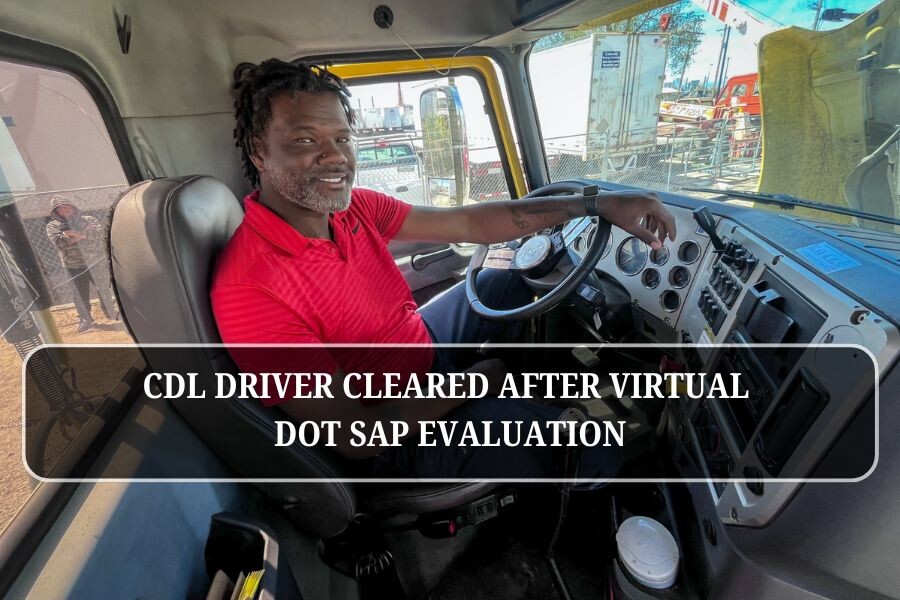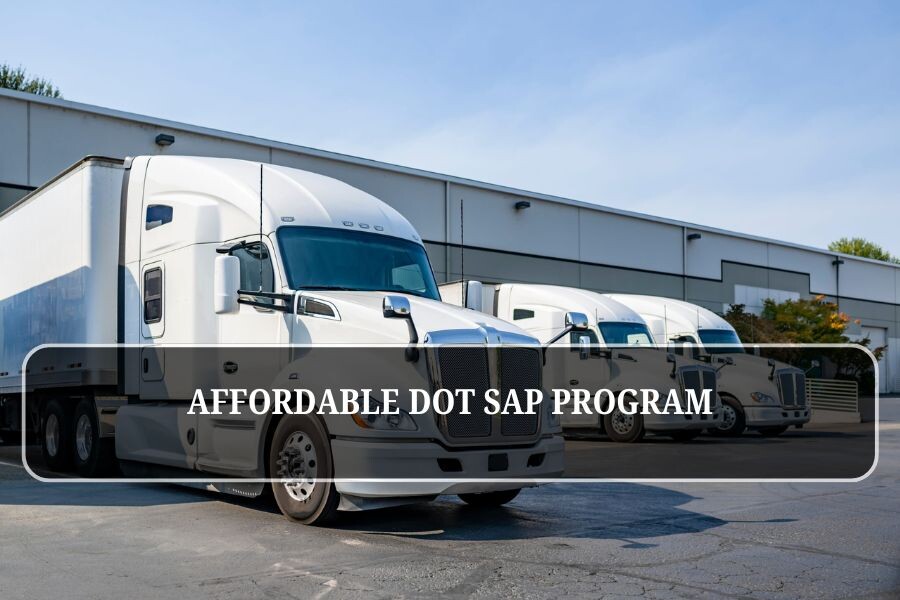After a DOT drug or alcohol violation, every commercial driver must complete a Substance Abuse Professional (SAP) evaluation before returning to safety-sensitive duties. Many drivers ask the same question: “What’s the fastest way to complete my DOT SAP evaluation and return to duty?”
While there are ways to speed up the process, it’s important to understand that DOT regulations—not the provider—set the timeline. In this blog, we’ll break down how fast a DOT SAP evaluation can be completed, what factors influence the timeline, and how to avoid delays.
Why the SAP Evaluation Matters
The SAP evaluation isn’t just paperwork—it’s a federally required process designed to protect public safety and help drivers succeed. During the evaluation, the SAP will:
- Assess your substance use history
- Recommend treatment or education if needed
- Monitor your progress through follow-ups
- Submit documentation to the FMCSA Clearinghouse
Skipping or rushing through this process can result in delays, non-compliance, and losing your CDL eligibility.
How Fast Can You Get a DOT SAP Evaluation?
- Same-Day Appointments – Many providers (including telehealth SAPs) offer same-day or next-day evaluations.
- Virtual Evaluations – Telehealth appointments allow drivers to connect quickly without travel delays.
- Immediate Clearinghouse Updates – Once completed, the SAP updates your record in the FMCSA Clearinghouse, which speeds up employer verification.
👉 However, the treatment or education plan recommended by the SAP may take longer, depending on your situation.
What Determines the Speed of Your Return to Duty?
Several factors influence how quickly you can complete the DOT SAP process:
- Appointment Availability – Virtual SAPs often provide faster scheduling than in-person sessions.
- Driver Cooperation – Completing recommended education or treatment promptly helps avoid delays.
- Follow-Up Testing – Your employer must conduct a Return-to-Duty drug test after SAP clearance.
- Employer Readiness – Even if your SAP clears you, your employer must be ready to place you back in safety-sensitive duty.
Can You Really Return to Duty Quickly?
Yes—but only if you:
- Choose a qualified DOT SAP provider with fast availability
- Actively complete all recommended steps (education, treatment, testing)
- Stay in communication with your SAP and employer
- Avoid providers promising “shortcuts” (non-compliance risks your CDL and career)
Fast doesn’t mean skipping recovery—it means working efficiently within DOT rules.
Tips for the Fastest SAP Process
- Book a virtual SAP evaluation – No travel = faster results.
- Prepare your documents – Have CDL info, violation details, and employer contact ready.
- Follow recommendations promptly – The sooner you complete your program, the sooner your SAP clears you.
- Stay proactive – Don’t wait for reminders; stay ahead in your recovery plan.
Conclusion
The fastest DOT SAP evaluation is possible when you choose the right provider, act quickly on recommendations, and comply with every DOT regulation. While no provider can “skip steps,” you can absolutely return to duty quickly by working with a qualified, responsive SAP.
👉 At AACS Counseling, we provide same-day and virtual SAP evaluations nationwide—helping drivers get back on the road efficiently while meeting every compliance requirement.











